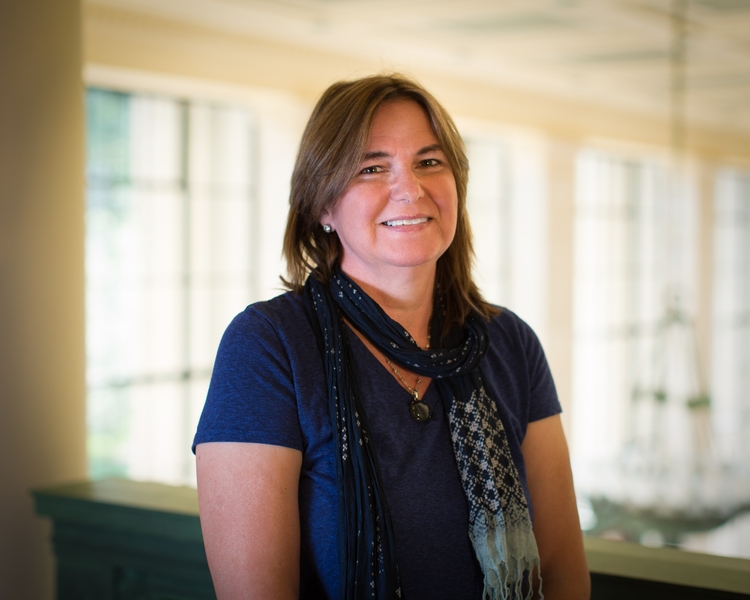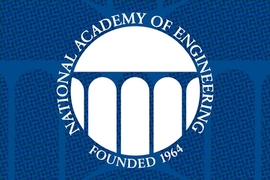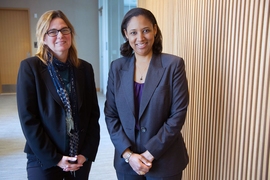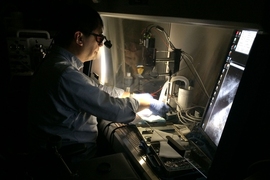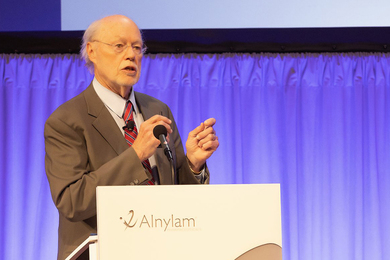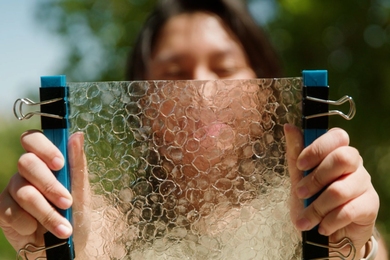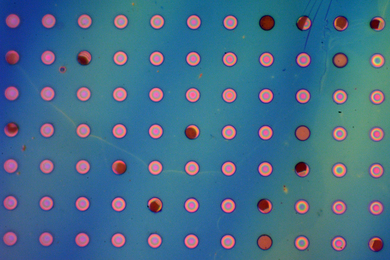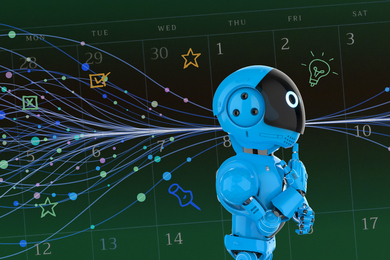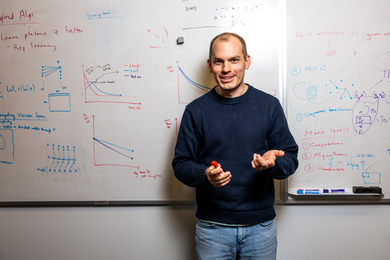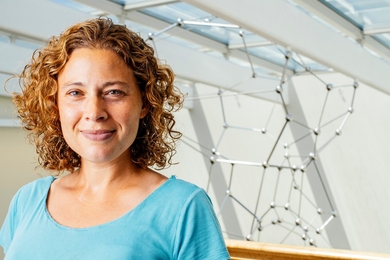Angela Belcher, the James Mason Crafts Professor of Biological Engineering and Materials Science and Engineering at MIT, has been named the new head of the Department of Biological Engineering, effective July 1.
“Professor Belcher is a brilliant researcher who has done remarkable work in biomedical engineering and energy research. She has demonstrated exceptional commitment and vision as an educator. I am thrilled that she will be serving as the new head of our biological engineering department. I know she will serve as an excellent leader, and I very much look forward to working with her,” says Anantha Chandrakasan, dean of the MIT School of Engineering and the Vannevar Bush Professor of Electrical Engineering and Computer Science.
When Belcher takes on her new position, the MIT School of Engineering will have a record high number of women on Engineering Council. They include Paula Hammond, head of the Department of Chemical Engineering; Anette “Peko” Hosoi, associate dean of the School of Engineering; Asu Ozdaglar, head of the Department of Electrical Engineering and Computer Science; and Evelyn Wang, head of the Department of Mechanical Engineering. Four of the School of Engineering’s eight departments will be led by women.
“We are privileged to have remarkable women in leadership roles within the School of Engineering to help advance their departments and engineering at large,” Chandrakasan says.
A faculty member in the departments of Biological Engineering and Materials Science and Engineering, as well as at the Koch Institute of Integrative Cancer Research, Belcher is a biological and materials engineer with expertise in the fields of biomaterials, biomolecular materials, organic-inorganic interfaces, and solid-state chemistry and devices.
She succeeds Doug Lauffenburger, a professor of bioengineering who led biological engineering from its start as the Division of Bioengineering and Environmental Health in 1998.
“I am deeply thankful for Professor Lauffenburger’s remarkable leadership in the Department of Biological Engineering,” Chandrakasan says. “He has been a tireless and spirited advocate for the department’s students, faculty, researchers, and staff during his tenure. We are truly grateful for his outstanding service.”
“Professor Belcher has demonstrated remarkable success in teaching our students,” Lauffenburger says. “Her high teaching scores and positive student evaluations are a credit to her passion for imparting knowledge and commitment in a rigorous while engaging style.”
Belcher’s research focuses on harnessing nature’s processes in order to design technologically important materials and devices for energy, the environment, and medicine. She and members of her research group work on understanding how ancient organisms have evolved to make exquisite nanostructures like shells and glassy diatoms. Using only non-toxic materials, they employ directed evolution to engineer organisms to grow and assemble novel hybrid organic-inorganic electronic, magnetic, and catalytic materials. They encourage these organisms to grow and assemble technologically important materials and devices as varied as solar cells, batteries, medical diagnostics, and basic single-molecule interactions related to disease. Their work in the last year has focused on the development of a real-time surgical guided imaging system for ovarian cancer, and has demonstrated a 40 percent increase in life span with mouse models. Their focus now is on developing real-time, non-invasive, deep imaging systems to find, remove, and treat sub-millimeter tumors to further increase the life span in patients in many types of cancer.
Belcher was awarded a Presidential Early Career Awards for Scientists and Engineers (PECASE) in 2000, and a Packard Fellowship for Science and Engineering and Sloan Research Fellowship in 2001, and in 2004 was named a MacArthur Fellow. She was named a fellow of the American Academy of Arts and Sciences in 2012, won the Lemelson-MIT Prize in 2013, was named a fellow in the National Academy of Inventors in 2015, and was elected to the National Academy of Engineering in 2018. In 2009 Rolling Stone magazine listed Belcher as one of the top 100 people changing the country, and in 2007 TIME magazine named her a “hero” for her research related to climate change. She has also received the Four Star General Recognition Award (U.S. Army) for significant contribution to army transformation and is a past winner of the Eni Prize for Renewable and Non-Conventional Energy.
Belcher has 40 patents; in 2002 she cofounded Cambrios Technologies, and in 2007 she founded Siluria Technologies. She obtained her bachelor’s degree in Creative Studies in 1991 and her PhD in inorganic chemistry in 1997 at the University of California at Santa Barbara.
Scott Manalis, the Andrew and Erna Viterbi Professor in the MIT departments of Biological Engineering and Mechanical Engineering, a member of MIT’s Koch Institute for Integrative Cancer Research, will support Belcher as associate department head.
